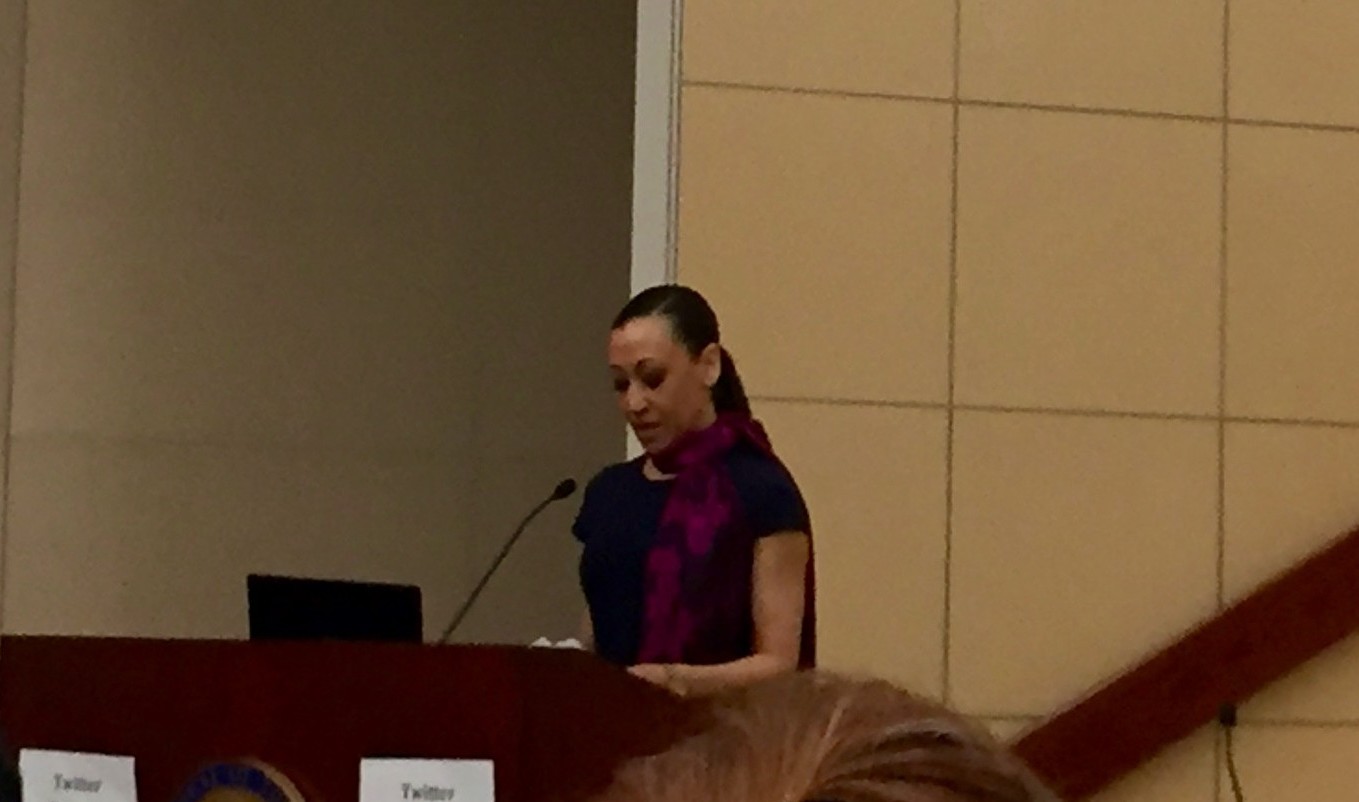

Last month, the Alameda County District Attorney’s Office hosted the Bay Area Human Exploitation and Trafficking (H.E.A.T) Watch Coalition’s first meeting of the year to discuss the demand for human trafficking. The idea is to attack the demand for sex in an effort to lessen human trafficking. Unfortunately, sex trafficking is a huge problem in Oakland. However, our city council and police department are committed to combating sex trafficking and exploitation. There are also countless non-profit organizations, such as the Survivors Healing, Advising and Dedicated to Empowerment (S.H.A.D.E.) Project and Bay Area Women Against Rape, out in the trenches.
The meeting was attended by people from various government bodies and non-profit organizations fighting against human trafficking. Oakland City Council President Lynette Gibson McElhaney opened the session, reminding us that we live in a time where sex work is being glamorized by the music and movie industries.
“There’s nothing glamorous about it,” McElhaney said plainly. McElhaney also called human trafficking the human slavery of our time. She told the organizations present that, “you all are the abolitionists of our day.” A truly powerful statement.

We watched the unveiling of a new video produced by the U.S. Department of Justice that highlights the work of H.E.A.T. Watch. The department will distribute the video to other cities, counties, and organizations that wish to follow or learn from the successful strategies adopted by H.E.A.T. Watch. Alameda County Assistant District Attorney Jennifer Madden noted that Alameda County prosecutes 46 percent of the human trafficking cases in California, with an 85- percent success rate.
The keynote speaker was Tom Perez of the EPIK Project in Portland, Oregon. The EPIK Project aims to engage men in the fight to end child trafficking in the United States. Perez introduced himself as “just a guy” fighting against the demand for child trafficking.
“Whatever else you want to say about this issue, it’s a business system,” Perez stated and the buyers are “a small but prolific group of men.”
Perez said that fewer than 50 men in EPIK made contact with about 8,000 individuals who were attempting to buy sex through a false ad placed on a website used to solicit sex. The ad used code words such as “young” and “petite” that are often used in trafficking children. Of the 10 men who called EPIK most frequently in response to the ad, the Portland Police Department busted six of them for soliciting sex. EPIK now has five cities with active teams fighting the demand for child trafficking.
“The cell phone in your pocket is the brothel of the 21st century,” Perez proclaimed. After developing a database of phone numbers associated with men who solicit sex, EPIK decided to use this same technology to help the victims. With the help of a comic artist, EPIK produced comic strips that told the stories of some of the survivors of human trafficking. For five days, they blasted the phone numbers of the men with a comic a day, letting them know the realities of sex traffic. For example, they made it clear that the victims see very little, if any, of the profit. They hope the comics engender sympathy for the women. Their next step is to find a way to disrupt the market in the social media space.
The meeting ended with a review of the multi-agency Super Bowl operations. S.H.A.D.E. summarized their efforts, along with the Alameda County District Attorney’s Office, to train hotel employees on what to spot with regards to human trafficking. In the months leading up to the Super Bowl, S.H.A.D.E. created informational cards to reach victims of human trafficking and placed them in hotels lobbies and rooms in Oakland and San Jose. The cards listed organizations to contact if help was needed.
Martha Parker, of the FBI, provided a summary of the operations during the week leading to the Super Bowl. Six counties participated in 18 operations. The agencies processed 85 prostitutes, arrested 13 pimps and recovered seven juveniles – the youngest was just 14- years- old.
The Super Bowl gave the government agencies and non-profit organizations an opportunity to have a coordinated community response to sex trafficking. But it doesn’t end here. Aurel Agustin, of the Hayward Police Department, stated that the fight against human trafficking is infectious. That was clear as the applause rang throughout the room as the meeting closed.
I am an Oakland native and graduated from the California Polytechnic State University, San Luis Obispo, with a bachelor's degree in Political Science in 2003. While at Cal Poly, I was a member of Sigma Omega Nu and was the resident advisor for the multicultural tower of Yosemite Hall during the 2000-2001 school year. My passion for education and Oakland inspired me to focus my senior project on the state takeover of the Oakland Unified School District in 2003. After graduation, I returned to Oakland and was an AmeriCorps member in Oakland from 2004-2005, working on community building in Sobrante Park.

Excellent quotes in this story! Outstanding job to be able to pick them out. That is excellent writing and brings the story to life. It helps when people say great stuff, but it is incumbent on the reporter to pick it out. You did that!!